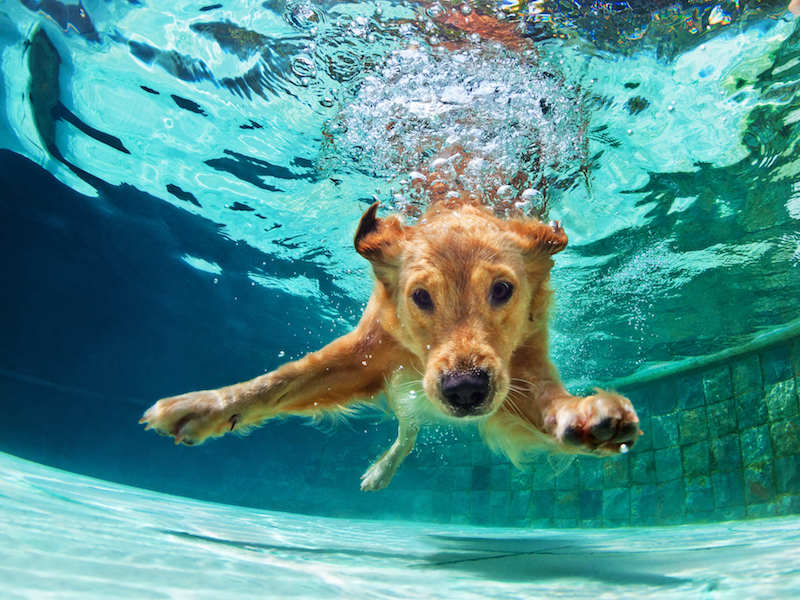
There are many factors which can affect the electrical circuitry of your hearing aids. Hearing aids seem to self-destruct under extreme moisture conditions. Even if you already know that and take care to protect your investment from the shower, pool, or a good face washing, chances are you are missing the most common reason for water damage in hearing aids: humidity.
Moisture that you can’t see has the highest chance of causing irreparable damage. It’s time to learn more about why humidity is a damaging thing for hearing aids.
What is Humidity?
Humidity is a word that gets bounced around a lot, especially during the summer months, but what is humidity? PBS describes humidity as water molecules in the air. When presented as a percentage, for example, the relative humidity is 40 percent today, it refers to the amount of water vapor in the air compared to what air could hold. When you can feel wetness in the air, that means the relative humidity is high.
People are very sensitive to humidity because sweat is the most effective way to cool the body. When humidity levels are too high our sweat won’t evaporate as quickly. Electronics are also susceptible to humidity and that is why it has such a detrimental effect on hearing aids.
Understand Humidities Effect on Hearing Aids
Oddly enough, electronics are not only sensitive to high humidity but low levels as well. When water vapor percentages are high condensation can collect on the delicate elements that make electronic devices function, and low humidity can cause brittle core materials.
Internal electronics are the reason your hearing aids work. Newer digital hearing aids use a state-of-the-art signal processing chip to control noise. It’s what is behind elegant functions like:
- Noise reduction
- Anti-feedback
- Targeted listening programs
- Digital sound streaming
Moisture can accumulate in the hearing aid when humidity is high and damage that component. Batteries get destroyed and you get corrosion of elements inside of the case. It’s the same as throwing your hearing aid in a pool of water.
Dealing With Humidity
Water resistant models are currently available. Having this feature doesn’t mean you can swim with your hearing aids in your ear, but it does provide some protection from humidity and other weather-related issues like getting caught in an unexpected rainstorm or even sweat when you work out.
If you live in a humid area, think about getting a room or house dehumidifier to reduce water vapor indoors. It’s not only your hearing aid that will benefit, there are health benefits, and other electronics in the home will also be protected. Dehumidifiers reduce the risk of mold, mildew and dust mites, so everyone breathes a little better, too. Although a house or room dehumidifier will help protect your hearing aids, it’s not enough. There are a few other things you can and should do.
Consider buying a dehumidifier designed especially for hearing aids. They come at all costs levels. Drying kits rely on silica gel crystals to protect the electronics. You put the device in the dehumidifier for a couple of hours to eliminate moisture. Drying your hearing aids as you sleep at night can be done using specially designed storage containers. In a pinch, you could use a bag of uncooked rice to remove moisture.
Get in the habit of opening the battery compartment every time you store your hearing aids. When you expose the battery and inner elements to air by leaving the door open, condensation can evaporate by itself. Do this all year round, not just in the summer months.
A cool dry place is the ideal for storage. Avoid putting them in the glove compartment, in a hot room or on a table in the sun.
Thinking Beyond Humidity
Air vapor is not the only moisture that can damage hearing aids. Don’t forget to think about other types of wetness like:
- Make sure all lotion or sunscreen is fully absorbed before touching your hearing aids or putting them in your ears.
- Find a safe place to store your hearing aids if headed for the pool or beach.
- Wear a sweatband when exercising. It’s a good practice whether you wear your hearing aids when you workout or not. Later that sweat will cause problems.
- Check surfaces before you put your hearing aid down. You don’t want to place it in a wet spot left by a glass or coffee cup.
Your hearing aids are a valuable asset, so treat them that way. Keep in mind how moisture can damage your hearing aids and make sure to prevent water from getting in them. If your hearing aid already has water damage make an appointment for service with a hearing aid specialist.
